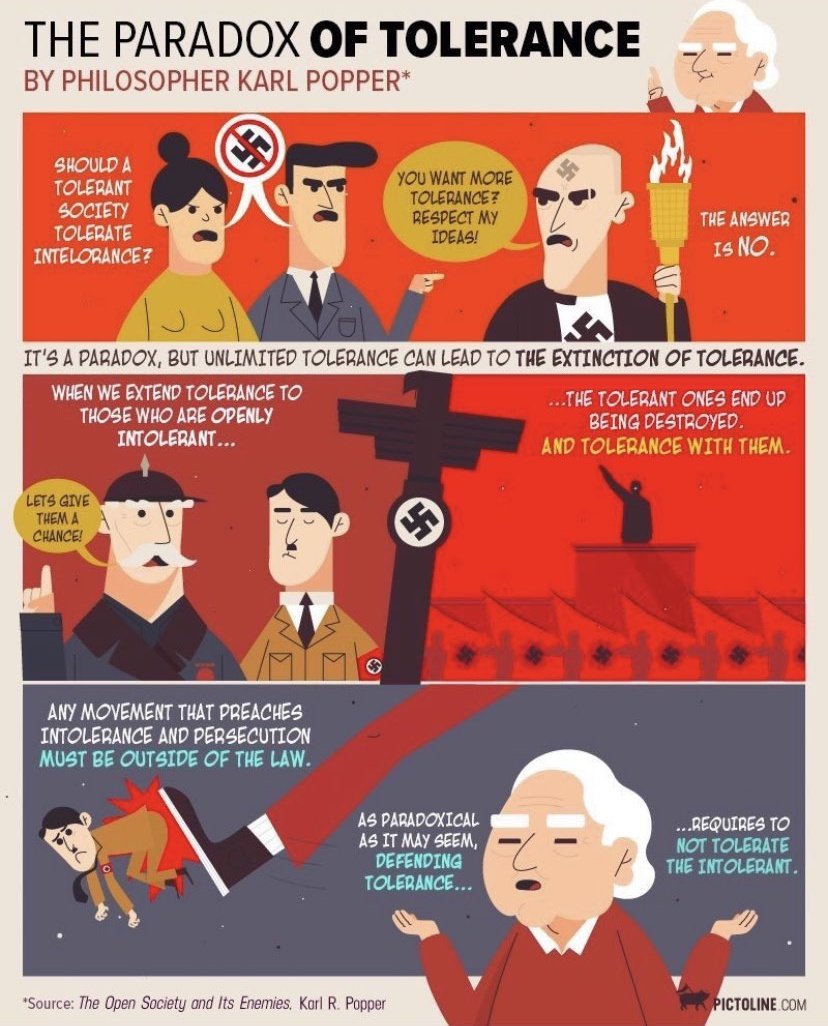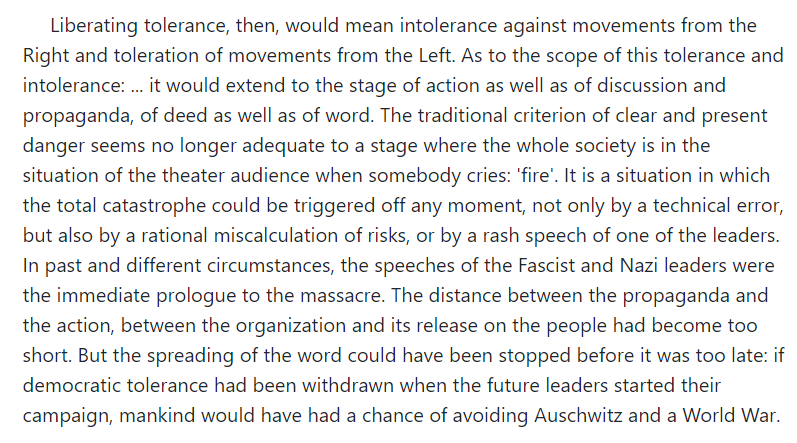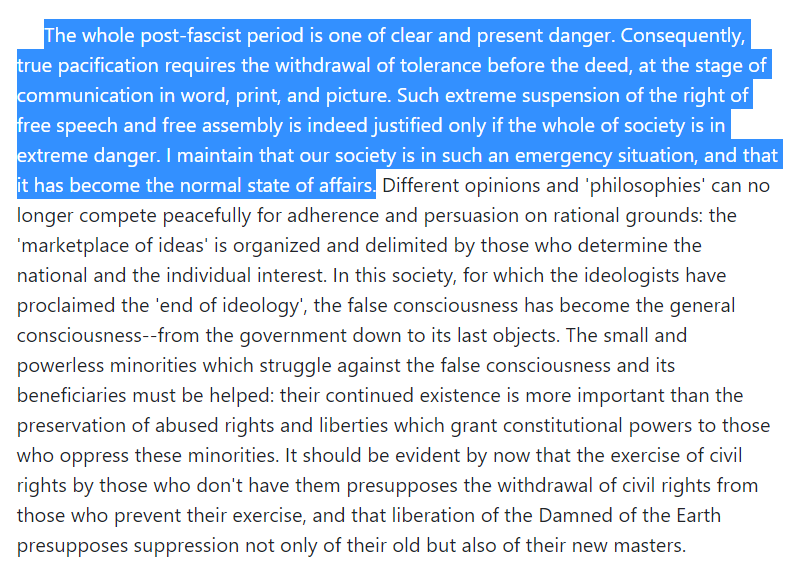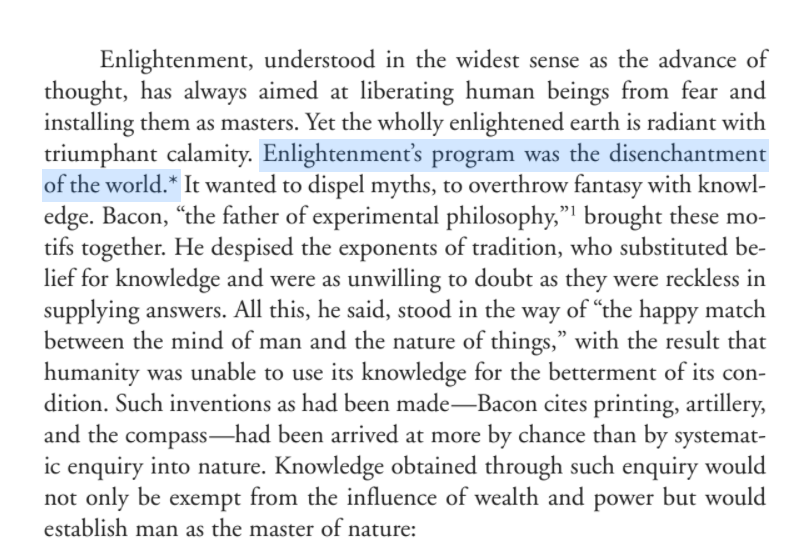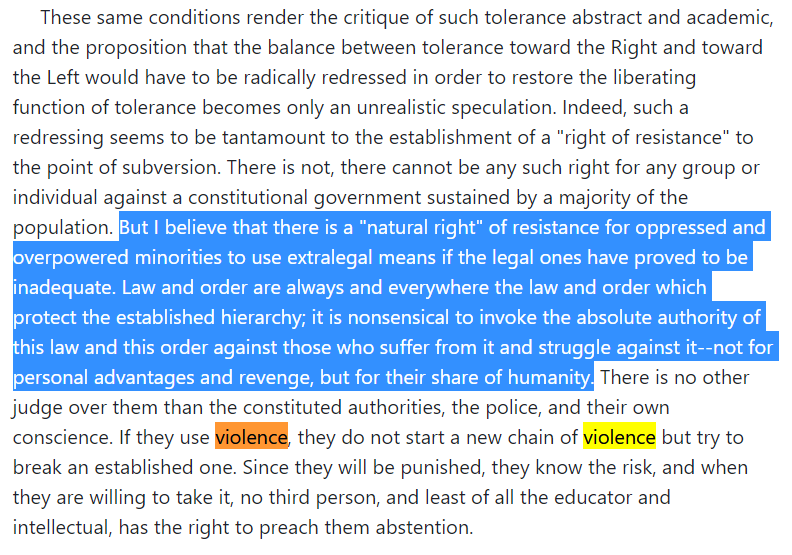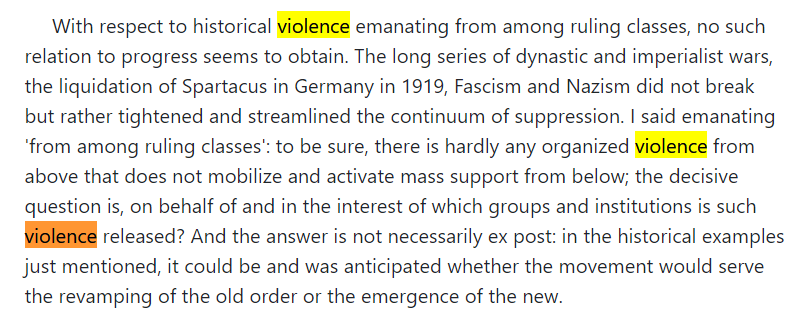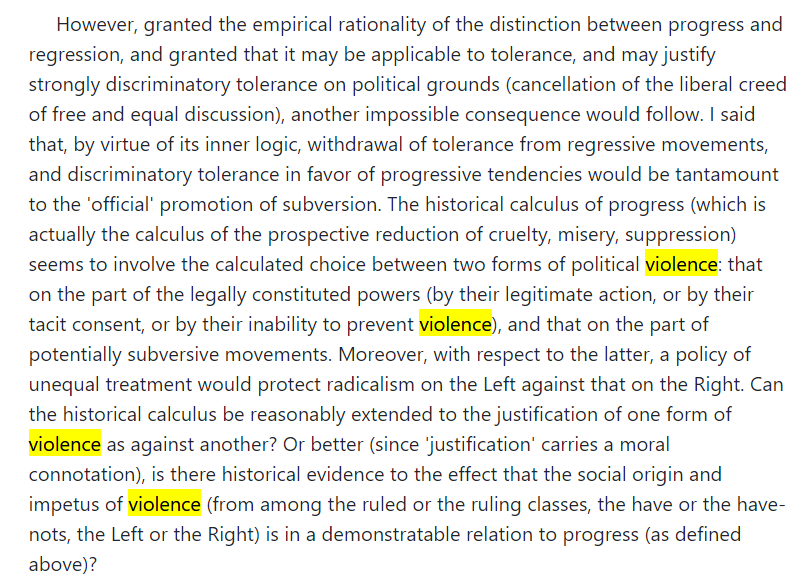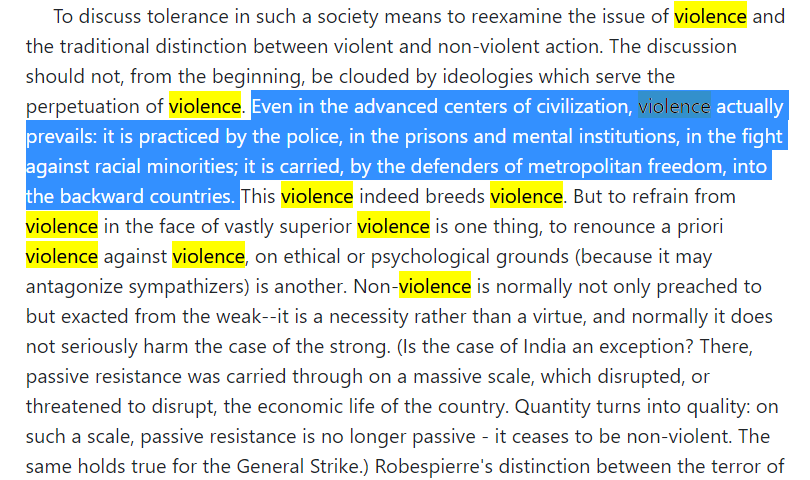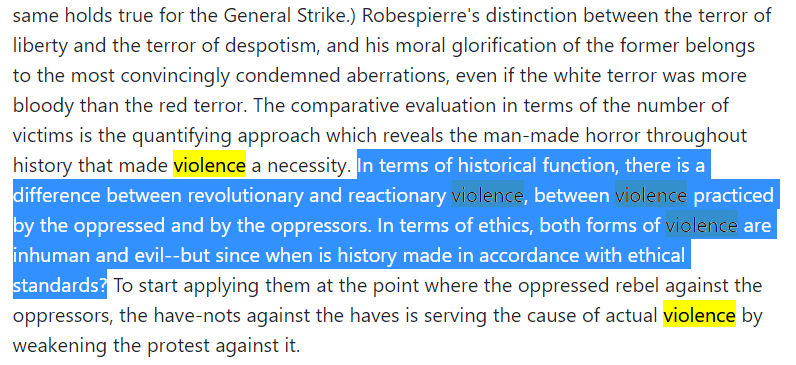We need to get something straight.
This is propaganda. It's also popular. It misrepresents Popper (reasonable) and sneakily forwards Marcuse (radical totalitarian), specifically his Repressive Tolerance.
This is propaganda. It's also popular. It misrepresents Popper (reasonable) and sneakily forwards Marcuse (radical totalitarian), specifically his Repressive Tolerance.
Popper has a much more careful argument where he outlines the Paradox of Tolerance. In that more careful argument, he points out that one should not seek to suppress intolerant ideologies until they can't be reasoned with. (Uh oh, Wokies!)
The context of the graphic, though it's not made specific, can pretty easily be determined to be what Herbert Marcuse is talking about in "Repressive Tolerance" (1965) as "liberating tolerance."
Link: https://www.marcuse.org/herbert/publications/1960s/1965-repressive-tolerance-fulltext.html
Link: https://www.marcuse.org/herbert/publications/1960s/1965-repressive-tolerance-fulltext.html
You'll notice that while Popper argues that when intolerant movements become unresponsive to argument is time to stop tolerating them (Uh Oh, Wokies!!), Marcuse says we should not tolerate the right and should tolerate the left, lest we end up with Nazis and fascists. Insane.
Marcuse wasn't coming from a place of sanity. He was coming from a place of liberationism (the paramoral paradigm in Critical Theory). Under that view (see also, Dialectic of Enlightenment), all liberal orders are about to flip to fascism any moment and must be repressed.
Whereas Popper made the argument that it is when an ideology is (1) intolerant and (2) completely unreachable by rational argument (UH OH, WOKIES!!!), Marcuse insisted the left is always fixing that problem and the right and liberals are always going fascist right away.
By the way, here's the opening paragraph of Dialectic of Enlightenment, by Horkheimer and Adorno (1944/47), which is considered the most systematic exposition of Critical Theory. It's thesis is that Enlightenment rationalism (and religion) always end in fascism. Nonsense, ofc.
Back to Marcuse, who you can now see as a perversion of Popper (who would warn us severely against the Woke, not write FOR them), I keep telling you to read the essay because it's what you're living through now. LOOK FAMILIAR?!
Technically, Marcuse isn't wholly wrong. He points out that violence emanating from "ruling classes" is unjustifiable and must be resisted (UH OH, WOKIES! TECHNOCRATS! DEMS! LINCOLN PROJECT!) and must be resisted, but he simplistically breaks this into left and right.
So, Marcuse is a great example of becoming the monster you try to slay because that point about ruling class power (OH NO WOKIES!) really gets hit hard again with calls for justified violence against it. Of course, that's what they think they're doing to the liberal order.
Notice in the above passage that Marcuse simplistically protects "left" from "right" and not the reverse. Marcuse, in fighting totalitarianism, lost sight of his own and became a blatant totalitarian, as we'll continue to see. Popper would not support what's happening now.
Marcuse shows his hand pretty clearly here, where he invokes Robespierre (oof!) to defend revolutionary violence and condemn "reactionary violence," while also saying that while violence is always wrong, ethics don't matter in the making of history.
Side bar! Again! When Marcuse talks about "making history," that may have the usual meaning, but it also must be remembered that Marcuse is a Hegelian neo-Marxist and therefore would believe that history has to be made (toward his idea of liberation) by revolutionary action.
What we're seeing in Marcuse here, then, is a clear indication that he believes that the kind of violence that serves his view of how the world should go is justified to repress "the right" while all other forms are absolutely evil and must be preemptively suppressed.

 Read on Twitter
Read on Twitter